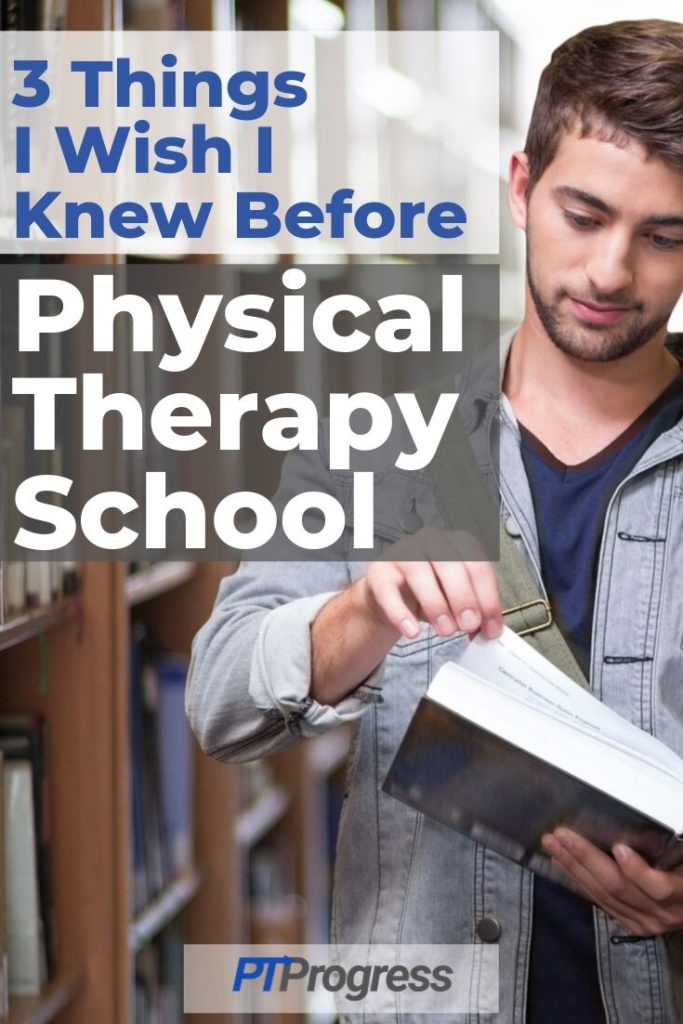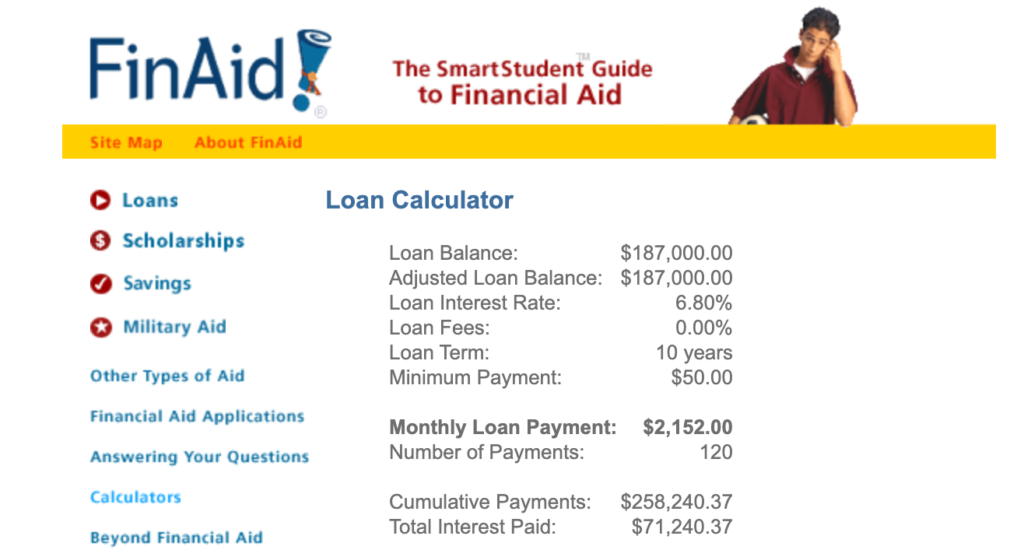
Getting into PT school isn’t easy. For the 50% of people who are accepted into Physical Therapy school, you’re in for a challenging 3 years.
I went into PT school, having already completed a masters degree in business, so I thought I had a pretty good handle on this grad school thing.
But I quickly learned that PT school would be the most challenging 3 years in academics that I’ve ever had.
So if you’re thinking about PT school or just getting started in a new Physical Therapy program – here are three things I wish I knew before starting the PT Program. Especially #3 – I’ll talk dollars and cents and let you in on how much it cost me to become a physical therapist.
1. Hard Work is More Important Than Being Smart
I mentioned earlier that I have a business degree. You don’t actually need a biology or kinesiology degree to get into PT school. You can watch the video on recommended majors to get into PT school here.
But one thing I didn’t realize was how challenging the science courses would be within in the program. I’m talking about courses like advanced cell biology 1&2 as well as neuroscience and physiology.
And at first I thought “oh Woe is me” I’m just a business major trying to learn all these sciency things. I’m at such a disadvantage.”
But then I realized – all my friends who were biology and kinesiology majors – they didn’t coast by all the science courses in PT school. Except for one person – there’s always going to be that one person. Forget them and please don’t ever compare the time you spend studying to the time they say they spend or don’t spend studying.
The fact is, these advanced graduate courses in science are not easy. And you’re going to be surrounded by a lot of smart people. But don’t confuse hard work with being smart.
Hard Work vs. Intelligence
There was a study a while back titled: “Praise for intelligence can undermine children’s motivation and performance” And basically what the researchers found was that students praised for intelligence were found to care far more about performance goals (how they did in the moment) as opposed to learning goals when compared to students who were praised for their effort or the hard work they did.
The students who clung to their intelligence were found to display less persistence and overall less enjoyment than students praised for hard work.
The students praised for intelligence described it as more of a fixed trait or something that couldn’t change.
While the students praised for hard work believed their efforts could lead to further improvement and development.
Look, you might have a friend in the program who seems to be smarter than you in almost every subject. Forget about it. Your job is to work hard and put in the time and effort it takes for you to learn the material. Your job is not to match the number of hours someone else does within the program. That doesn’t matter and it’s the first lesson I wish I knew before starting PT school.
2. Teach Others What You Know
The second lesson is to teach others what you know and you’ll quickly learn what you don’t. How many times have you studied a lecture and felt like you had a pretty good idea of the material, just to take the exam and to realize how much detail you’ve totally forgotten.
Welcome to Physical Therapy School!
And this is where the concept of Peer Assisted Learning comes into play.
Now before you say, Tim but I study best when I study alone. I’m not telling you the key to success in PT school is to study in groups.
Go ahead and study by yourself. But when you feel like you know the material, find someone or a group of people to teach what you just learned.
An interesting study of first year medical students at the University of Calgary noted improved test scores of student instructors compared to a group of students who did not take an active teaching role in a small groups.
The study noted increased time spent studying for student instructors preparing for lectures, which makes sense because there’s naturally a shift in your mindset when you know you’re about to teach others the material – so you might spend a little extra time on the subject.
Other studies mentioned in the article point to improvements in overall boards scores and final GPAs for medical students who took active roles as peer instructors among small groups of students.
In PT school, I found myself studying in multiple groups at times learning from others, and I think it was one of the best ways to cover material for long term retention. So if you think you know something, try to teach someone, and you’ll quickly learn what areas you need to review again.
3. Graduating with $187,000 in Student Loans isn’t Ideal
The average annual tuition for private physical therapy school is about $37,000 a year. Add at least $1,000 a month for living expenses and you’ll come close to $147,000. My student loans included my undergraduate and previous grad school balance, which left me with over $187,000 in federal student loans.
It’s not that I think you should choose a career based on the money you’ll earn. But you do need to consider what this load of debt will mean for you in the long run.
The minimum payment for a standard 10 year repayment for $187,000 is just over $2,100 a month. That’s a $24,000 a year pay cut for the next 10 years.

In other words, it turns your PT job with a starting salary of $75,000 into a $50,000 job very quickly.
Final Advice for PT School
The best advice I can give future students is to strongly consider a state school when applying for physical therapy programs. The median state school tuition is $18,000 a year as of right now, which is 50% lower than private universities across the country. And when you’re finished, you’ll hold the same license and pass the same boards as someone who spent close to $200,000 on their degree.
If you’re already in PT School, try to keep your expenses at a minimum and avoid taking out extra if you don’t have to.
For more helpful insights on PT School, check out the PT School YouTube Playlist – I’ll see you there!

